Most pediatricians will prescribe Western medicine for children to reduce fever, but many parents want to find a more natural alternative. But nature does not mean ignoring the fever because it will be very uncomfortable for your baby. Here are 5 tips to help reduce fever naturally.
Massage your baby to cool down
Place a towel on a water-proof mattress in a warm, airtight room. With a bowl of warm water on the side, you can add a bag of chamomile tea to the water for a mild fragrance. Put your baby on the towel, undress him but can keep the diaper if desired. Dip your hands in the water, then gently place it on your baby's chest. Spread your fingers out and swipe down the sides of your baby's waist. Hold one leg of the baby and gently swipe from the toe to the hip continuously from 3 to 4 times, doing with the other leg.
Do the same with your arms 3 to 4 times. Hold your baby's shoulders in hand then down to chest and repeat. During the massage, it is advisable to dip your hands in water from time to time. The gentle touch will make the baby feel comfortable, but if the baby appears tense, it should stop immediately. No child is exactly the same and some strategies can work very well for one baby but not for others.
Cucumber pacifiers
Cucumbers are commonly used by spas to reduce inflammation and swelling of the tissues around the eyes. It also has the same cooling effect when it comes to making baby pacifiers. You should use both young cucumbers, peel one end and then use a knife to shape the fingertips with the large base and the round and small tops. Be sure not to expose the seeds as this can cause your baby to choke. Keep the uncooked part as you would when holding the bottle and suck the peeled part. Pay close attention to the fruit to make sure it doesn't get crushed. The cooling effect of the melon will help reduce the fever immediately.
Breastfeed more often
when your baby has a fever, she often quite anorexic but she should remember that this is the time they need to be supplemented more water than normal. Dehydration is dangerous when your baby has a fever. If your baby refuses to eat, should feed him several meals, each meal a little. If your baby is breastfed, you should let your baby adjust the amount of milk he wants to suck, but you must feed your baby more times. If your baby uses a bottle, feed only half of the normal amount at a time and double the number of feedings. Also, if your baby is bottle-feeding, use room temperature milk instead of warm milk to help reduce fever.
Bathing with your baby
The contact between your skin and your baby's skin along with the warmth of the bath water will have a cooling effect on your baby. Even if you let your baby bathe by himself rather than sharing a bath, this is an effective way to reduce fever and aches and pains caused by fever. You can add a bag of chamomile tea for a pleasant smell, even though the tea does not reduce fever.
Wrap your
baby in a cool blanket It can be hard work when your baby has a fever because wrapping the blanket as usual will only make him hotter. However, there are some babies who only accept to sleep when wrapped in a blanket.
The following methods of wrapping the blanket can help.
Just use a normal wrapped blanket and fold into a triangle.
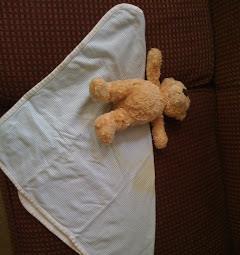
Place your baby on the left side of the blanket, the head and shoulders above the folds of the blanket. Place your baby's left hand under the blanket.
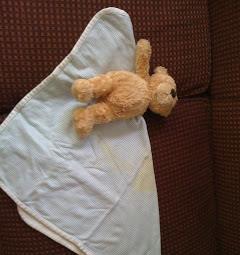
Then, fold the left blanket underneath the baby, now both corners are on the right side of the baby.
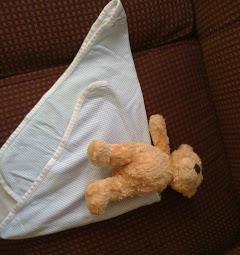
Place baby's right hand under both covers
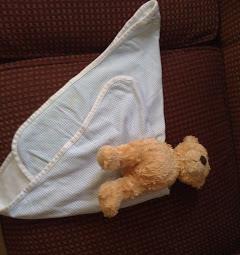
Fold the larger part of the blanket under the baby's arms and body so that the blanket returns to the baby's left side.
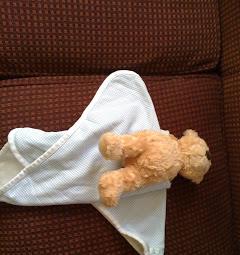
Pull the two corners of the blanket up in front of the baby, then do a basic blanket wrap like you're preparing to tie your shoes.
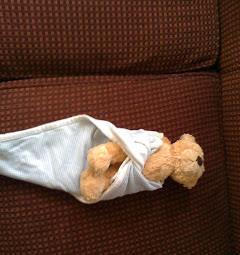
Now pull up the corner of the blanket below and tuck in the knot you just created.
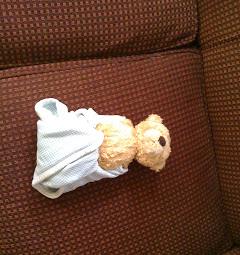
The baby was covered with a blanket at this time, but the chest, shoulders and neck were not hidden. This is the best way to wrap a blanket for a baby with a fever, sure but not too hot. Use a light cotton blanket to wrap.


















